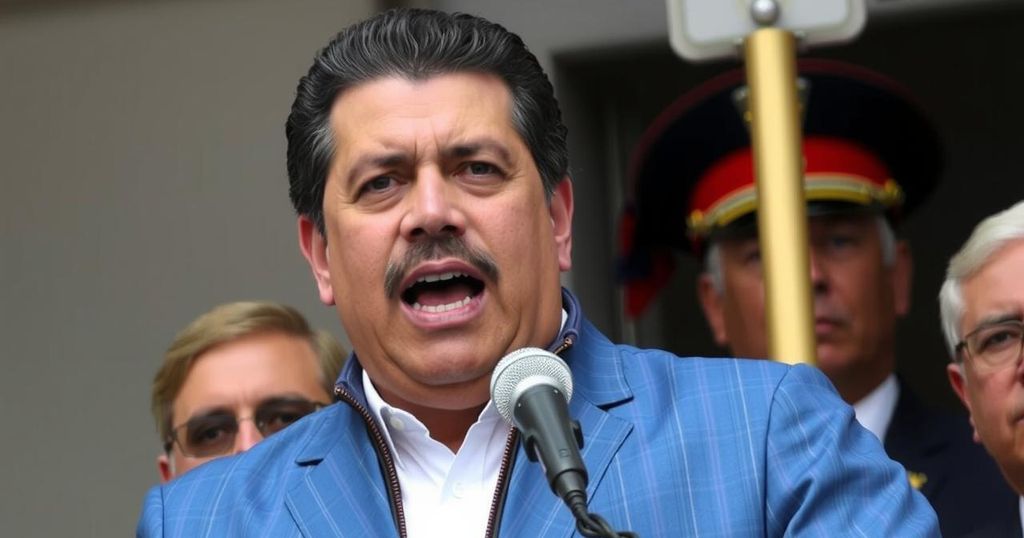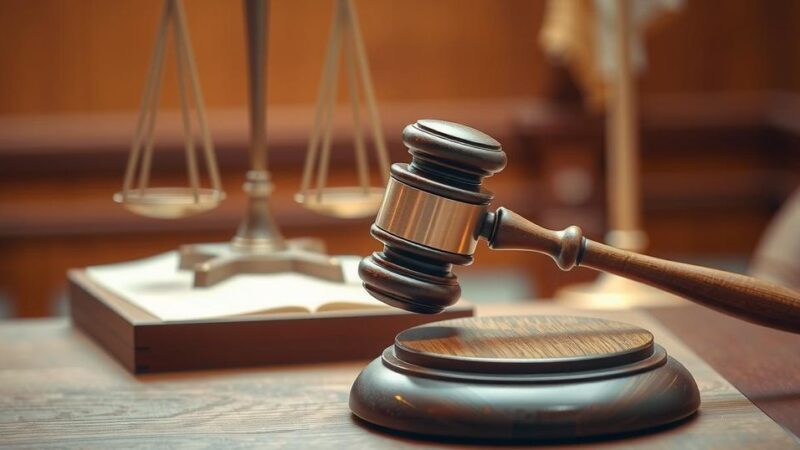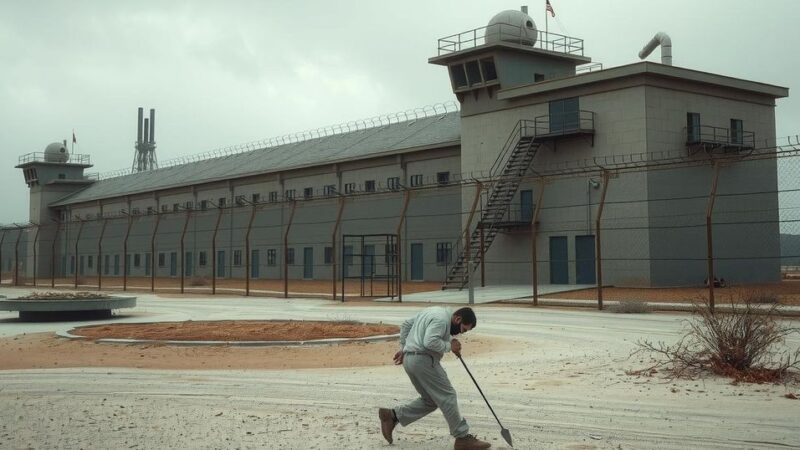Nicolás Maduro was sworn in for a controversial third term in Venezuela despite disputed election results indicating that opposition candidate Edmundo González actually won. The election aftermath fueled protests against Maduro’s administration, which faced criticism for violent suppression of dissent. International acknowledgment of González as president-elect highlights the political crisis, raising questions about Maduro’s legitimacy and future governance.
Nicolás Maduro underwent an inauguration ceremony on Friday, marking the commencement of his contentious third presidential term. This event transpires amidst significant international scrutiny and unaddressed disparities surrounding the election conducted in July. In his inaugural address, Maduro asserted, “The power granted to me by the Constitution has not been given to me by a foreign government or a gringo government. I have not been placed by the oligarchy. I come from the people. The power I represent belongs to the people and I owe it to the people.”
However, evidence collected by the opposition indicated that Edmundo González, the opposing candidate, actually emerged as the victor. Following the election, González’s supporters obtained information from over eighty-five percent of the electronic voting machines, with external monitors such as the Carter Center affirming the credibility of these findings. Despite this, Maduro emerged with an electoral endorsement that lacked transparency, triggering public dissent and leading numerous nations, including the United States, to recognize González as the legitimate president-elect.
This election debacle incited widespread protests throughout the nation, which the Maduro administration met with aggressive crackdowns, resulting in thousands of arrested demonstrators and fatalities. Activists faced a wave of repression, leading prominent opposition figures like González to seek refuge abroad. In anticipation of his inauguration, Maduro encountered a surge of demonstrations against him, with incidents erupting in Caracas involving clashes with security forces and numerous arrests of both supporters and journalists oppugning his regime.
As Maduro embarks on what he characterized as a new era of “peace, prosperity, equality and new democracy,” criticism surrounds him due to a notorious history of electoral manipulations and political imprisonments. The nation remains deeply polarized, and skepticism regarding his pledges is significant, particularly in light of the political turmoil enveloping Venezuela. In his effort to reaffirm authority, Maduro has publicly attempted to delegitimize González’s initiative to assert his presidency by offering rewards for his capture, portraying his opponents as conspirators.
The current situation in Venezuela has emerged from a turbulent political history dominated by Nicolás Maduro’s administration, which began in 2013. Following a controversial electoral process, which lacks credibility in the eyes of many international observers, Maduro has asserted his power in the face of rising opposition and public discontent. The July election results ignited further tensions as they suggested that the opposition candidate Edmundo González won, a finding supported by independent monitors. Amidst a climate of repression and turmoil, the legitimacy of Maduro’s continued presidency is significantly challenged.
In summary, Nicolás Maduro’s third inauguration is shadowed by claims of electoral fraud and opposition resistance. Despite his declarations of democratic governance and reforms, his history of suppressing dissent and manipulating elections presents a significant obstacle to Venezuela’s stability. The international community remains engaged, advocating for the restoration of democratic norms, as Edmundo González seeks to unify the opposition and reclaim political authority, highlighting the ongoing struggle within Venezuelan governance.
Original Source: reason.com






